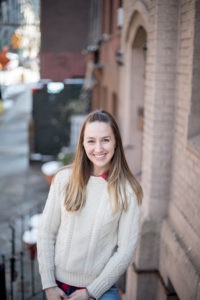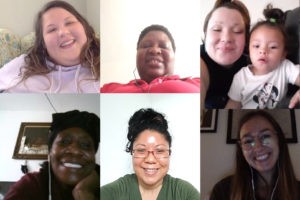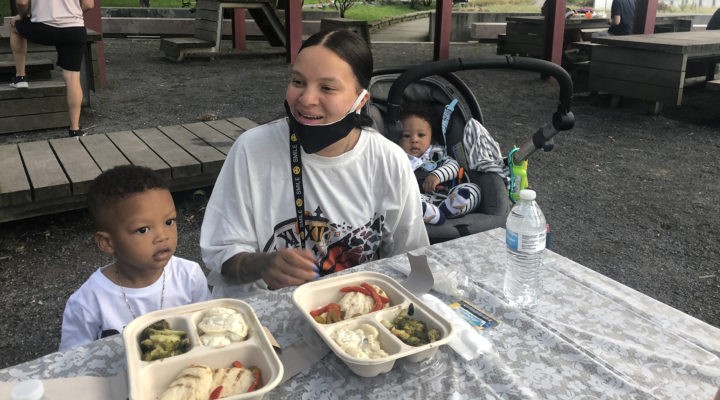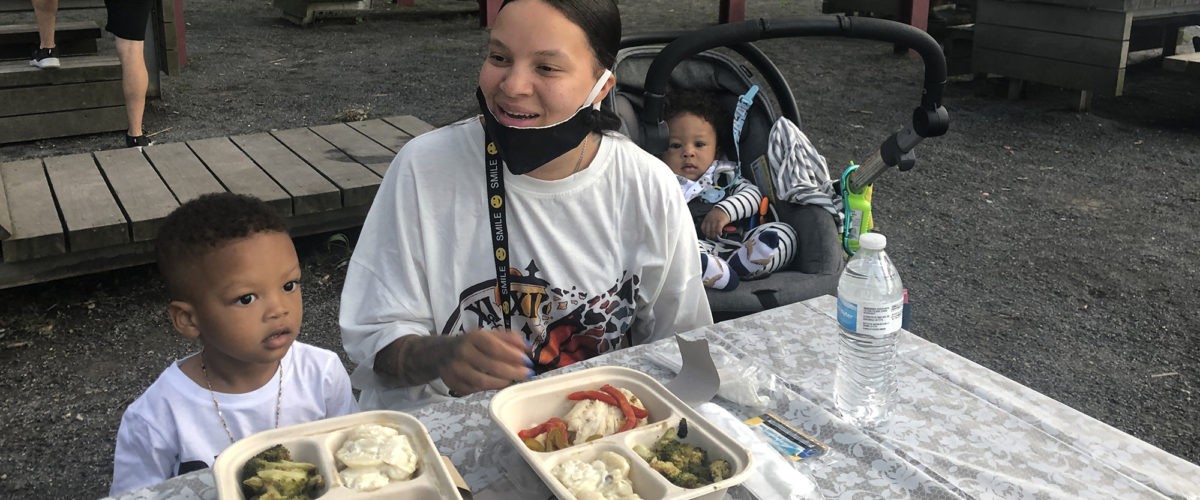Serving homeless people, as well as victims of domestic violence and other forms of trauma, is challenging anywhere. But the difficulty multiplies in New York City, Lesley-Ann Hix Tommey has learned.
“In New York, everything is happening on such a big scale and in such a small area that it’s really, really easy to feel overwhelmed,” said Hix Tommey, Cooperative Baptist Fellowship field personnel who serves as ministry facilitator for Rauschenbusch Metro Ministries in New York City. She was commissioned and joined the organization in 2017.

Lesley-Ann Hix Tommey
“The first year I was here, I realized there were 60,000 homeless sleeping in the city every night, and I wondered, ‘How am I supposed to do anything about that?”
Hix Tommey said she was confronted with a similar question when the COVID-19 pandemic began to ravage the nation and especially New York. It turned out her response to the homelessness issue helped her minister through the coronavirus outbreak.
“I had to realize I couldn’t do anything about that huge number of homeless people, but I could start connecting with individuals,” she said. “That’s how I could make a difference. You have one person in front of you, and that person needs to be everything that’s happening in that moment. It’s their life. They are not a statistic. That’s how we move forward.”
Fast forward to spring 2020 as New York City is shut down. “I really didn’t know what to do when COVID hit the city,” she explained. “So, I just focused on individuals and started reaching out to people to ask them how they were doing and what they needed.”
 That strategy has been vital to the continuation of the homeless ministry and to the Living Well Life Skills Empowerment Program Hix Tommey leads at Rauschenbusch.
That strategy has been vital to the continuation of the homeless ministry and to the Living Well Life Skills Empowerment Program Hix Tommey leads at Rauschenbusch.
Living Well provides 14-week cohorts and life skill, goal setting, communication and boundary-setting development to women who have survived domestic violence. Now Hix Tommey and her co-workers in the ministry use phone calls and virtual meetings to connect.
“We knew we had to act because survivors of trauma and survivors of domestic violence have a tendency to self-isolate. When the state mandated stay-at-home orders, that was a punch in the gut to our communities,” she said. “We needed to find a way to continue providing that safe space to show them people are good and can be good. Having to stay home and not see anybody can be devastating.”
In a recent newsletter, Living Well reported some of its accomplishments resulting from switching gears in 2020:
- 12,800 phone calls and text messages were made to current and past participants of the program.
- A virtual cohort, with seven participants, was launched in August.
- 72 virtual alumnae gatherings were held.
- An alumnae team was convened to advocate for past participants and the wider community.
- More than 200 resources were shared, including access to health care, mental health services, housing, food, virtual school and child care.
“Slowly, we found ways to form deeper and more sustainable support,” the newsletter said.
Rauschenbusch personnel and volunteers, including members of Metro Baptist Church, also distributed toiletries to college students, supplies to protesters and masks to shelters, served 800 Thanksgiving meals and provided toys and clothing to children.
“COVID immediately had us reaching out to our people all over the city,” the newsletter explained. “We checked in with colleagues working in the hospitals, partners working in shelters and friends providing community support. We intensely needed each other, whether that was for a friend to ‘grab onto’ in our emotional exhaustion or for resources to meet a desperate need.”
“COVID immediately had us reaching out to our people all over the city.”
However, the transition to operating in the pandemic was by no means a snap. Hix Tommey said she was initially skeptical about using Zoom to gather with Living Well participants. “The thing that was holding me back is that this program relies so much on community building and I couldn’t see that being possible online.”
But she came around when a nurse in a partner organization reported that she was seeing significant increases in engagement online. As a result, the first virtual Living Well cohort was launched in October.
“And I didn’t have to work to get their commitment,” Hix Tommey added. “They recognize that they need the support right now.”
The Zoom gathering has provided tangible benefits. “We have women who live an hour train ride away. The fact they can do group without traveling with two kids, that’s a big deal. We have had women doing the groups on their phones and on their kids’ iPads and tablets. This has made group more accessible.”
Hix Tommey said she has had to seek her own emotional support during the pandemic, as well. For that she turns to a therapist friend, fellow CBF field personnel and to her colleagues and friends in the community.
“They have helped me process so many things spiritually,” she said. “I need that support to process everything, actually, and sometimes to just figure out what to do next.”


